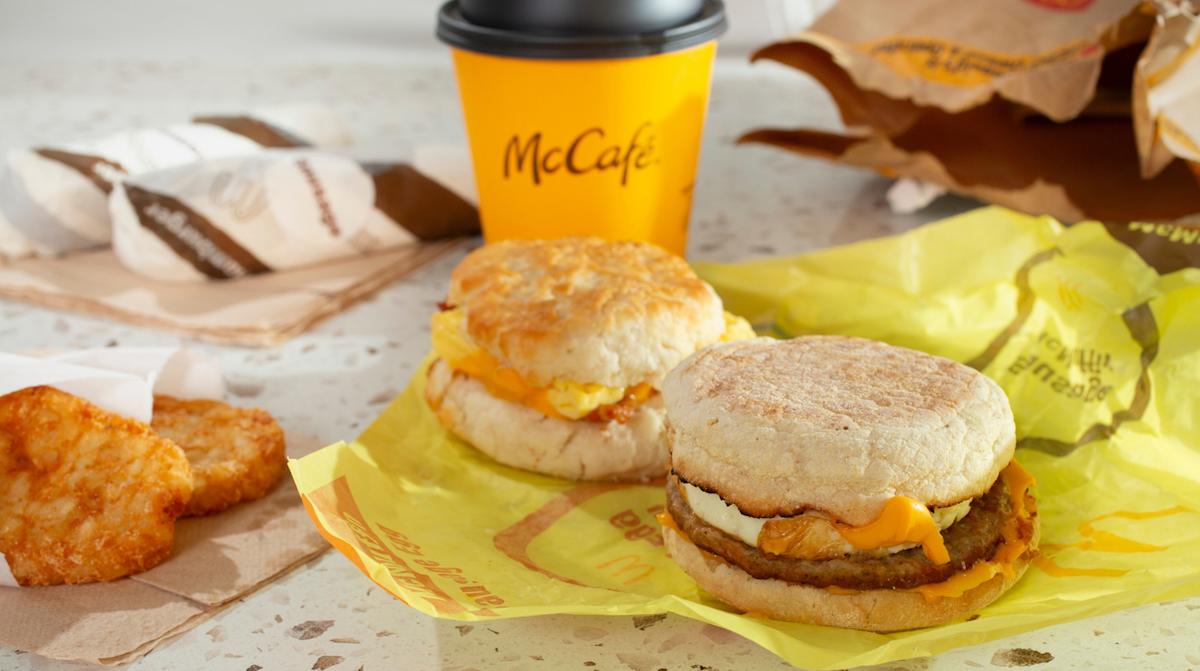Breakfast Breakup: Inside McDonald's Controversial Menu Shift
Lifestyle
2025-04-20 13:40:00Content

The Rise and Fall of McDonald's All-Day Breakfast: An Unexpected Journey
Remember when McDonald's all-day breakfast was the talk of the town? The beloved menu option that had customers rejoicing over the ability to enjoy Egg McMuffins and hotcakes at any hour suddenly vanished in 2020, leaving many fans puzzled and disappointed.
The story behind its disappearance is far more nuanced than a simple business decision. What seemed like a straightforward menu change was actually a complex response to unprecedented challenges brought on by the global pandemic.
When COVID-19 hit, McDonald's faced massive operational disruptions. Streamlining their menu became a critical survival strategy. The all-day breakfast, once a wildly popular offering that had reinvigorated the brand, suddenly became a logistical challenge in a world of reduced staff, limited kitchen space, and rapidly changing customer behaviors.
Restaurant managers needed to simplify operations, reduce complexity, and maintain efficiency during an incredibly turbulent time. The all-day breakfast, despite its popularity, was a casualty of these necessary adaptations.
While fans might mourn its loss, the decision reflected McDonald's agility in responding to extraordinary circumstances. Sometimes, survival means making tough choices that might not be immediately popular but are essential for long-term sustainability.
The Untold Saga of McDonald's Breakfast: A Culinary Rollercoaster Revealed
In the fast-food landscape, few menu changes have sparked as much controversy and consumer passion as McDonald's all-day breakfast saga. What began as a revolutionary dining concept quickly transformed into a complex narrative of corporate strategy, consumer preferences, and unexpected challenges that would reshape the golden arches' culinary approach.When Breakfast Dreams Collide with Operational Realities
The Rise of an Iconic Menu Revolution
McDonald's all-day breakfast wasn't merely a menu addition; it represented a seismic shift in fast-food culture. Launched in 2015, this innovative concept captured the imagination of millions who craved breakfast classics beyond traditional morning hours. Customers rejoiced at the prospect of enjoying Egg McMuffins and hotcakes at any time, transforming the restaurant's traditional dining paradigm. The initial reception was overwhelmingly positive. Franchisees reported significant revenue increases, and consumer enthusiasm seemed boundless. Breakfast items became a strategic differentiator, setting McDonald's apart from competitors who remained constrained by rigid meal-time restrictions.Behind the Scenes: Operational Complexity Unveiled
Beneath the surface of this seemingly straightforward menu expansion lurked intricate operational challenges. Kitchen workflows, already complex, became exponentially more complicated when breakfast and standard menu items needed simultaneous preparation. Limited kitchen space and equipment constraints created unprecedented logistical hurdles. Cooking temperatures, preparation times, and equipment allocation became critical bottlenecks. Grill space became a premium real estate, with staff navigating a delicate balance between breakfast and lunch/dinner item production. The operational strain was substantial, challenging the very infrastructure of McDonald's kitchen systems.The Pandemic's Unexpected Intervention
The COVID-19 pandemic emerged as an unexpected catalyst in the all-day breakfast narrative. As restaurants adapted to reduced staffing, limited hours, and streamlined menus, the complex breakfast operation became economically unsustainable. What once seemed innovative now appeared operationally inefficient. Franchisees faced unprecedented challenges: maintaining food quality, managing limited staff, and ensuring rapid service became paramount. The all-day breakfast, with its intricate preparation requirements, became a luxury McDonald's could no longer afford during a period of extreme uncertainty.Consumer Psychology and Menu Dynamics
The discontinuation of all-day breakfast revealed fascinating insights into consumer behavior. While initial demand had been robust, changing dining habits and evolving preferences suggested that the concept's novelty had potentially waned. Consumers began seeking more diverse, health-conscious options that transcended traditional meal boundaries. McDonald's strategic retreat from the all-day breakfast model wasn't a defeat but a calculated recalibration. By focusing on core menu items and operational efficiency, the company demonstrated remarkable adaptability in a rapidly changing restaurant landscape.The Future of Fast-Food Flexibility
The all-day breakfast saga represents more than a menu change; it symbolizes the dynamic nature of the fast-food industry. McDonald's experience offers a masterclass in balancing consumer desires with operational realities, showing that innovation requires continuous reassessment and willingness to pivot. As the restaurant industry continues evolving, McDonald's decision serves as a compelling case study in strategic menu management. The ability to introduce, assess, and potentially retire menu concepts demonstrates the sophisticated decision-making required in modern food service.RELATED NEWS

The Silent Budget Killer: When Your Spending Habits Quietly Spiral Out of Control

Sky-High Revelation: The 50-Minute Flight That Redefined My Travel Expectations






